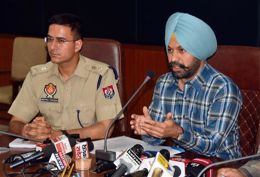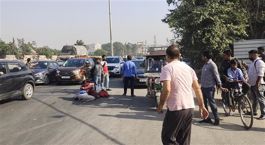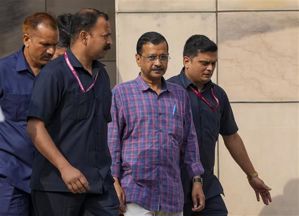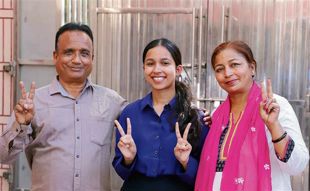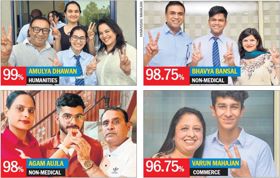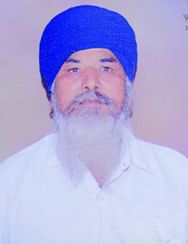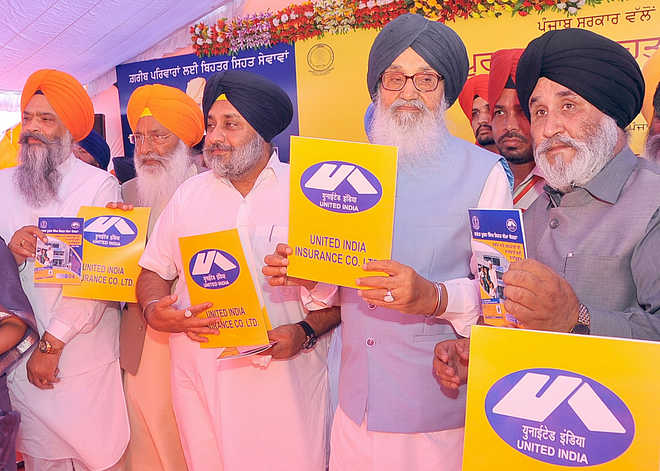
Chief Minister Parkash Singh Badal and Deputy CM Sukhbir Badal at the launch of a health scheme. Tribune file Photo
Ruchika M Khanna
Tribune News Service
Chandigarh, May 18
Launched with much fanfare, the Punjab government’s cashless health insurance schemes for those below poverty line, small farmers and traders and the government employees and pensioners are beset with operational problems.
While on one hand the big private hospitals are resisting empanelment on the pretext that they stand to lose money, those availing of the schemes claim being misled about the treatment cost and having to pay up despite the “cashless” claim.
Over 400 hospitals — all government and some private — have enrolled themselves under the Bhagat Puran Singh Sehat Bima Yojana (a Rs 50,000 health insurance cover for 22.5 lakh families of Blue Card holders, farmers and small traders) and 380 hospitals under the Punjab Government Employees and Pensioners Health Insurance Scheme. This entails a health cover of Rs 3 lakh.
Though some corporate hospitals in Mohali and Ludhiana have been empanelled, they prefer to take in only those patients who have to undergo surgeries or get implants. Those coming for other ailments are turned away to government hospitals.
Chief Minister Parkash Singh Badal’s random calls recently to beneficiaries who had lodged complaints revealed how they were being charged more than the rates notified.
The malaise is deeper. The limit of Rs 50,000 set for availing the cashless insurance (in Bhagat Puran Singh Yojana) is increasingly being used by private hospitals just for conducting tests, and patients are being charged for treatment. Like Jagdeep Singh, a farmer in Samrala. Suffering from a heart condition, he was told that the cost of the tests alone was Rs 45,000. “They told me that the limit for cashless insurance had been exhausted in getting the tests conducted and that I would have to bear the cost of treatment. I had no option but to agree,” he says.
Bharti Kisan Union president Balbir Singh Rajewal says the scheme has been a failure so far as the beneficiaries, especially farmers, have to bear the cost of treatment on their own.
Even government staffers and pensioners are aggrieved. Ajmer Singh, a pensioner from Mansa whose wife was undergoing treatment for ovarian cancer and succumbed to the disease this month, said though he had enrolled for the Rs 3 lakh cashless insurance scheme, on three occasions that his wife was admitted to a private hospital in Mohali, he had to himself settle the bill since the Third Party Administrator (TPA) failed to settle the claim. “Now after my wife died, I had no option but to pay the final bill and get the body released. It is only once I submit the claims to the TPA that I will get the reimbursement,” he said.
Owners of private hospitals and administrators say the fee settled under the two schemes is too less and since there is no dearth of patients willing to pay upfront, they are not keen on enrolling for the government health insurance, where payments are delayed.
Some doctors also said unlike in the Central Government Health Scheme (CGHS), where the rates for medical procedure are high and fee for implants is less, the government has kept the fee for procedure low and that of implants high. “Cashless insurance beneficiaries wanting surgeries or implants are good business, but the normal medical procedures do not make good business sense,” a doctor said.
Health Secretary Vini Mahajan admits teething problems. “But you must agree that these are the biggest ever welfare schemes being rolled out, which will benefit almost 34 lakh families. This is the first year and based on the shortcomings, the schemes will be fine-tuned for next year. As regards hospitals that are overcharging, we have started the exercise to de-empanel. For hospitals unwilling to come on board, they will soon realise that these schemes will become the bread and butter of all hospitals,” she says. A helpline has been set up and all complaints are being regularly monitored, she adds.






















